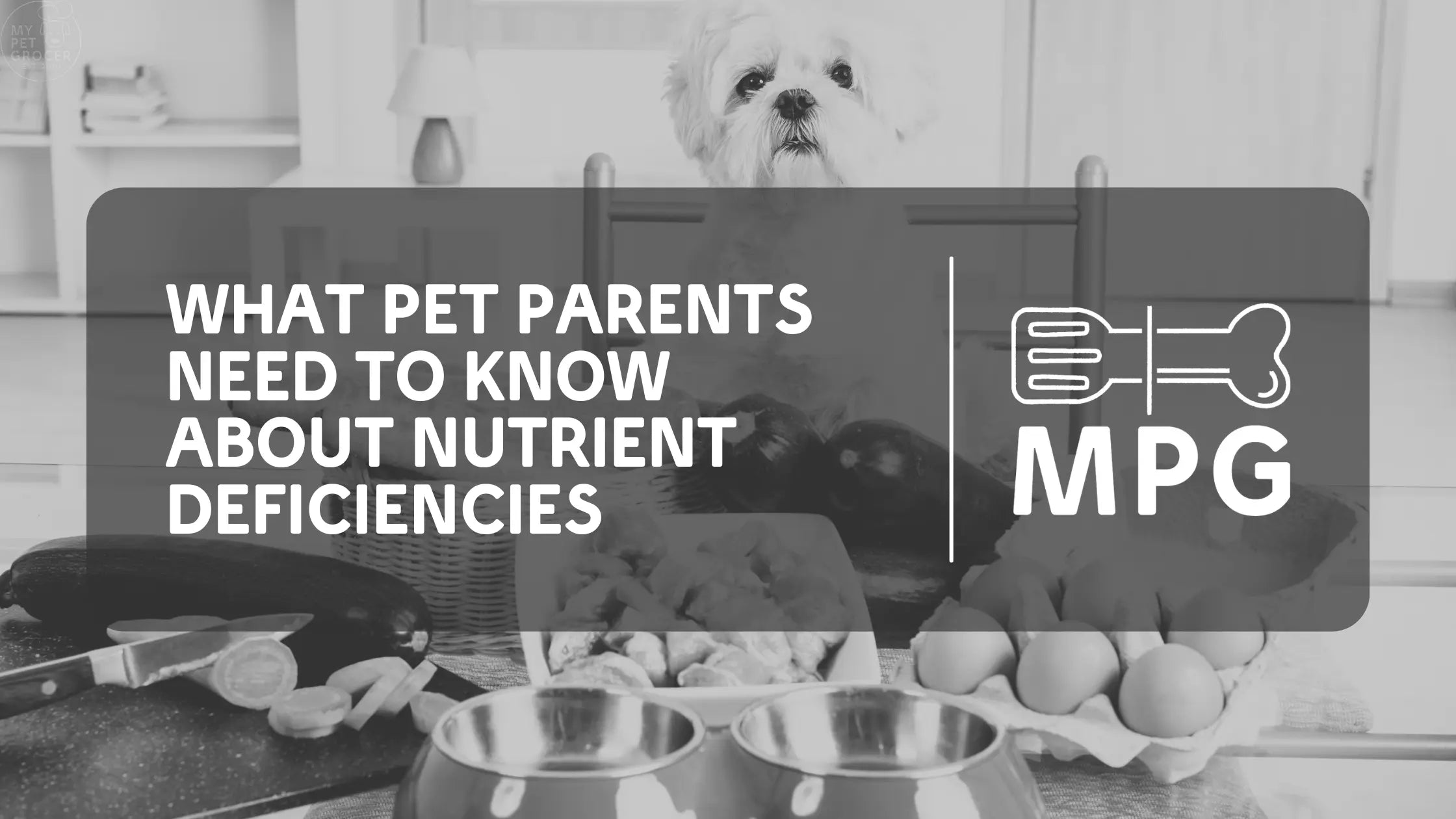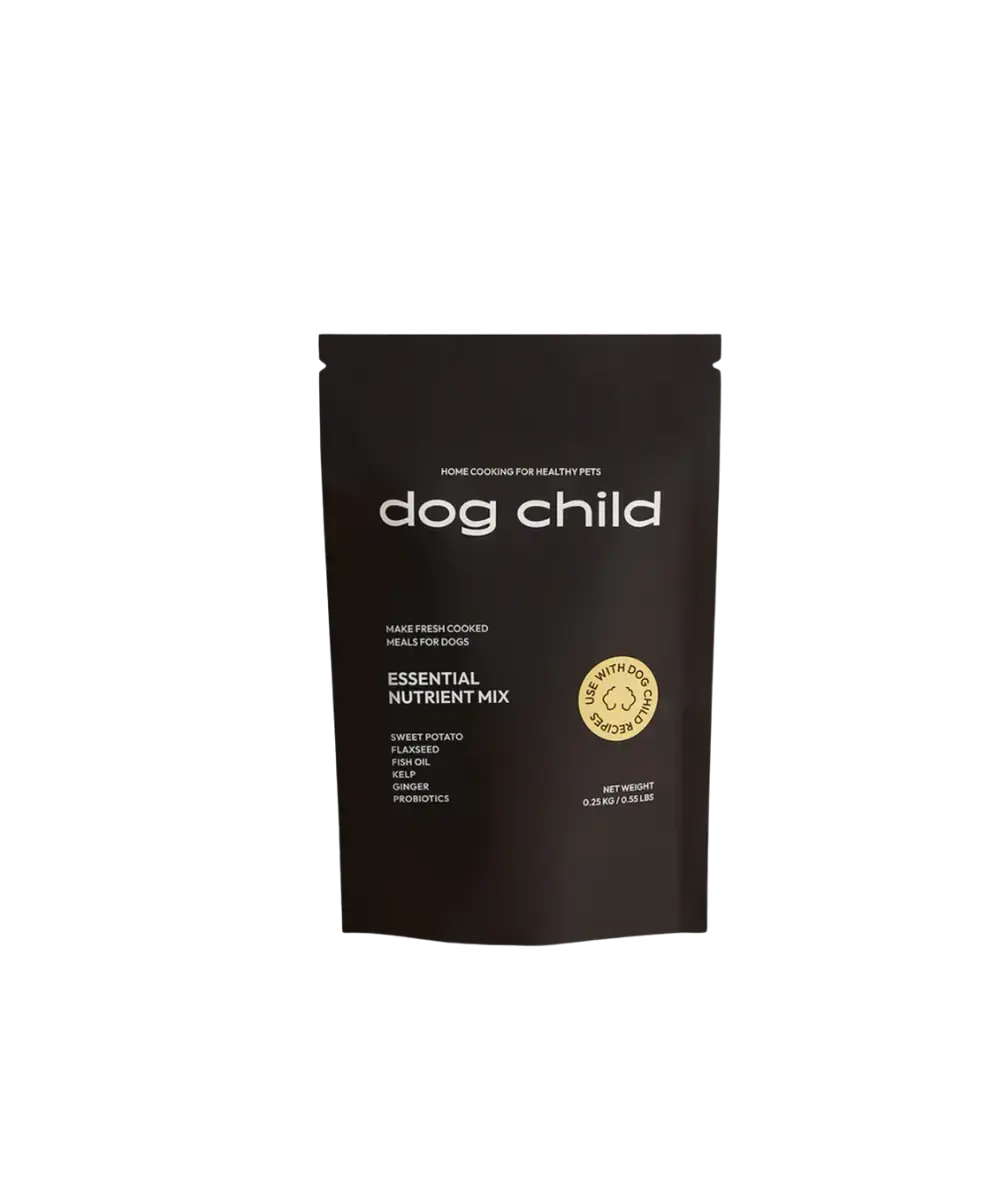
Homemade Dog Food: What Pet Parents Need to Know About Nutrient Deficiencies
Making your own dog food at home sounds like a great way to ensure your pet gets fresh, high-quality ingredients. But did you know that most homemade dog food recipes are nutritionally incomplete?
A study by UC Davis found that a shocking 95% of homemade dog food recipes they reviewed were missing key nutrients—and 83% had multiple serious deficiencies that could put a dog’s long-term health at risk.
If you’re feeding or considering homemade meals for your dog, here’s what you need to know about the study—and how to make sure your pet gets a balanced diet.

What the UC Davis Study Found
Researchers at UC Davis School of Veterinary Medicine analyzed 200+ homemade dog food recipes, including ones from:
✅ Veterinarians
✅ Pet care books
✅ Websites and pet blogs
Here’s what they discovered:
- 95% of the recipes had at least one nutrient deficiency.
- 83% were missing multiple essential nutrients.
- Even recipes written by veterinarians weren’t always nutritionally complete.
The most commonly missing or inadequate nutrients were:
- Calcium – Critical for bone strength and muscle function.
- Phosphorus – Works with calcium to support bones and teeth.
- Choline – Supports brain function and liver health.
- Zinc – Essential for skin, coat, and immune function.
- Copper – Plays a role in red blood cell production and connective tissue health.
Long-term deficiencies can lead to serious health problems like weak bones, muscle loss, immune system issues, and organ dysfunction.
Why Are So Many Homemade Diets Incomplete?
Even well-intentioned pet parents may run into problems when formulating homemade meals because:
❌ Recipes often lack key vitamins and minerals.
Many pet owners focus on proteins and whole foods but miss essential micronutrients that dogs need to thrive.
❌ Portions and ratios matter.
Feeding chicken, rice, and vegetables may seem balanced, but without precise nutrient calculations, it’s easy to miss essential elements like calcium and phosphorus.
❌ Homecooked ≠ Automatically Healthy.
Many homemade recipes don’t meet AAFCO (Association of American Feed Control Officials) standards, meaning they fall short on key nutrients dogs need daily.
❌ Even vet-written recipes may not be optimized.
The study found that some recipes from veterinarians were still missing nutrients—often because they weren’t formulated by board-certified veterinary nutritionists.
How to Safely Feed a Homemade Diet
If you want to homecook for your dog, you don’t have to give up on fresh feeding! You just need the right tools to ensure complete and balanced nutrition.
✅ 1. Work with a Veterinary Nutritionist
A board-certified veterinary nutritionist can create a custom, balanced recipe tailored to your dog’s needs.
✅ 2. Use a Complete & Balanced Nutrient Mix
Most homemade meals need a vitamin & mineral supplement to fill in the gaps. Chef’s Canine Complete, Chef’s Feline Complete, and Chef’s Puppy Complete are expertly formulated to meet AAFCO standards so you can confidently homecook for your pet without worrying about nutrient deficiencies.
🐶 Chef’s Canine Complete – Tailored for adult dogs, ensuring balanced nutrition in every homemade meal.
🐱 Chef’s Feline Complete – Specifically formulated to meet the unique dietary needs of cats, including taurine.
🐾 Chef’s Puppy Complete – Designed to support growing puppies with the right vitamins and minerals for development.
✅ 3. Follow Science-Based, Tested Recipes
Avoid random recipes from the internet and stick to formulas backed by veterinary science. Look for:
- AAFCO-approved homemade diet plans
- Recipes developed by board-certified veterinary nutritionists
- Guidance on proper calcium-to-phosphorus ratios
Final Thoughts: Fresh Feeding Done Right
The UC Davis study highlights an important truth: homemade dog food can be risky if not properly balanced. But with expert guidance and the right nutrient support, pet parents can safely homecook without deficiencies.
If you’re feeding a homemade diet, be sure to:
✅ Follow a science-based, AAFCO-complete recipe.
✅ Use a veterinary-formulated nutrient mix like Chef’s Canine Complete, Chef’s Feline Complete, or Chef’s Puppy Complete to ensure balance.
✅ Consult with a veterinary nutritionist if needed.
Your dog deserves fresh, homecooked meals—done the right way!


